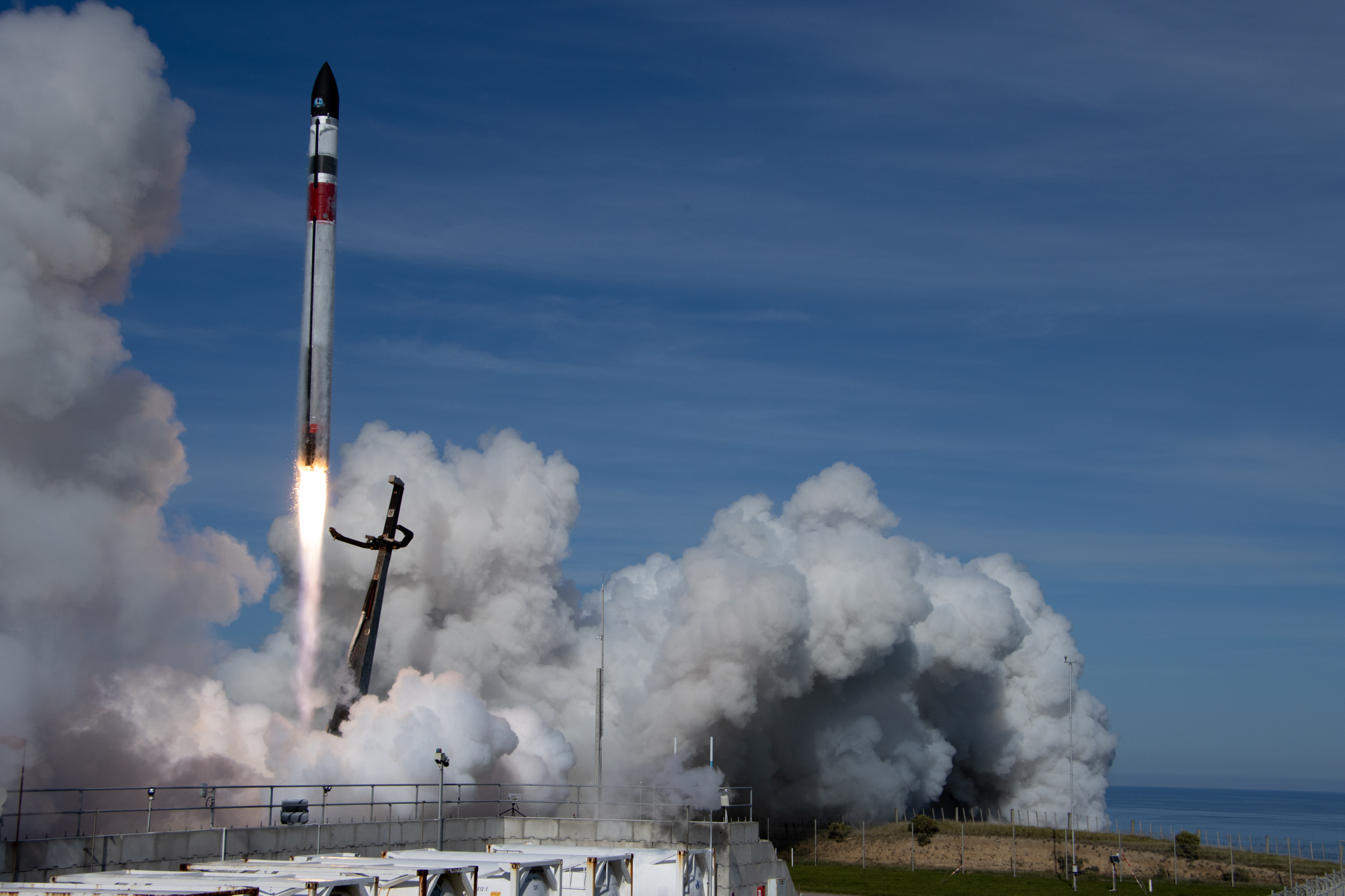
Rocket Lab has an action-packed launch planned for early Friday morning (March 24), and you can watch it live.
A two-stage Electron rocket is scheduled to launch two satellites to low Earth orbit from Rocket Lab's New Zealand site on Friday. Liftoff was originally expected to take place at 3:45 a.m. EDT (0745 GMT; 8:45 p.m. local New Zealand time), but was delayed to 5:14 a.m. EDT due to a strong geomagnetic storm caused by increased solar activity.
Earthly weather caused the scrub of the mission's previous launched attempt on Wednesday (March 22).
The Electron's first stage will come back to Earth under parachutes and make a soft ocean splashdown, if all goes according to plan. Rocket Lab will then recover the booster for analysis, to inform its quest to make the Electron partially reusable.
You can watch the mission, which Rocket Lab calls "The Beat Goes On," live here at Space.com or directly via Rocket Lab. Coverage is expected to begin about 20 minutes before liftoff.
Related: Rocket Lab launches 1st Electron booster from US soil in twilight liftoff
The two satellites going up on Friday belong to Seattle-based company BlackSky, which "combines high-resolution images captured by its constellation of microsatellites with its proprietary artificial intelligence software to deliver analytics and insights to industries including transportation, infrastructure, land use, defense, supply chain management and humanitarian aid," Rocket Lab wrote in a mission description.
That constellation currently consists of 14 satellites, nine of which have been lofted by Rocket Lab.
So how do we launch a rocket to space, bring it back to Earth under a parachute, splash it down in the ocean, and then pick it up with a boat to return it to our rocket factory? Pretty much like this.Our next marine recovery mission launches March 22nd, weather dependent 🌧️🌬️☀️ pic.twitter.com/VA5XFHGxTSMarch 19, 2023
"The Beat Goes On" will be Rocket Lab's second mission in about a week, following a liftoff from NASA's Wallops Flight Facility in Virginia on March 16.
The coming mission will be the company's third launch of 2023 and its 35th overall. The company has deployed a total of 157 satellites on these missions, all of which were flown by the 59-foot-tall (18 meters) Electron.
Rocket Lab has been working on Electron reusability for several years now. It has recovered first stages from the sea on several previous missions, for example, even plucking a falling booster out of the sky with a helicopter on one occasion.
The helicopter won't be involved on Friday, however; the Electron will hit the sea softly and be hauled aboard a recovery boat.
Rocket Lab is also developing a larger rocket called Neutron, whose first stage will be reusable from the start. Neutron is expected to fly for the first time in 2024, company representatives have said.
Editor's note: This story was updated at 2:10 p.m. ET on March 21 with news of the launch delay from March 22 to March 24.
Mike Wall is the author of "Out There" (Grand Central Publishing, 2018; illustrated by Karl Tate), a book about the search for alien life. Follow him on Twitter @michaeldwall. Follow us on Twitter @Spacedotcom or on Facebook.







